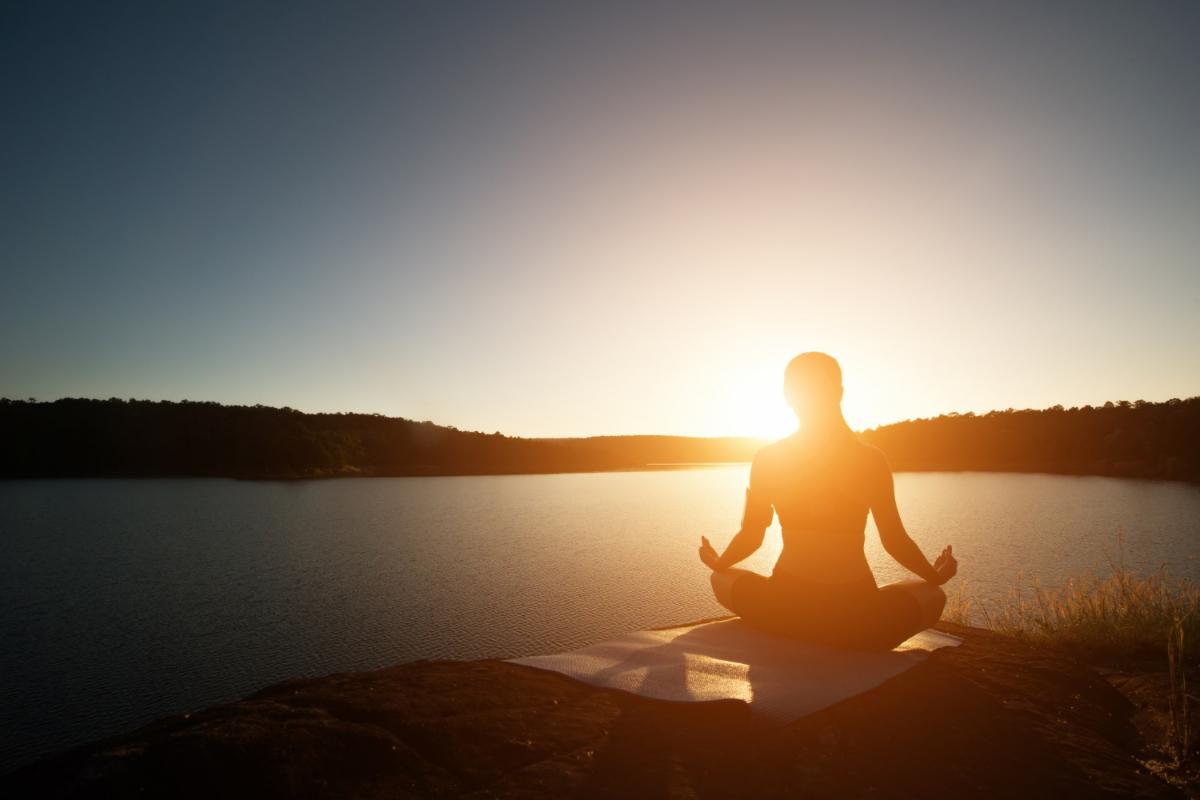
Mindfulness has become a huge buzz-word in the mental health space over the past few years, but can it really help? Research suggests that mindfulness, or the non-judgmental awareness of the present moment, when practiced regularly, has lasting positive effects on our mental health. A variety of mindfulness practices exist. For example, you may take a mindful walk, practice seated meditation, breathing, or even yoga postures.
In society today, anxiety is ubiquitous. Everyone deals with anxiety to one degree or another, but when it begins to interfere with everyday life, then we know change is needed. For some individuals, medication is warranted, however, other approaches may help you resolve your anxious feelings naturally. Mindfulness exercises are one of the most powerful tools for lowering your anxiety in day-to-day life.
How Does Mindfulness Work?
Mindfulness works by teaching you to develop greater awareness of connections between your mind and body. It will help you to learn how to manage negative thoughts and reactions. By becoming mindful or using mindfulness exercises, you can reduce the uncomfortable physical reactions that your body is experiencing. When negative thought patterns become habitual or automatic, your body will begin to react in physical ways. These reactions might include anxiety symptoms (ex. heart palpitations,) depressed mood, low motivation, and apathy (disinterest in normally pleasurable activities.) You may not even notice that your thoughts have shifted that much, but your body might already be reacting. This could leave you asking yourself what is wrong with you and wondering why you are feeling so badly.
What Does Mindfulness Do?
Mindfulness helps you handle and manage negative emotions and reactions. Negative emotions such as sadness, grief, frustration, disappointment, or jealousy, create a visceral reaction in the human body. A visceral reaction means that your central nervous system is stimulated and your flight or fight response becomes activated. This reaction releases chemicals and hormones in the body that are damaging to your health over a long period of time. When you experience a sudden loss, a perceived failure, a traumatic event, or when something else changes in your life, this can cause anxiety, sadness, or negative emotions. It is important to have healthy systems in place to help the mind and body recover.
How Do You Start Being More Mindful?
It is surprisingly easy to develop useful mindfulness techniques to counteract anxiety, depression, or negative thoughts or other emotions. You can incorporate them into your daily self-care routine until it becomes a habit, just like brushing your teeth. The physical relief that your body will feel from this is the positive byproduct of using these strategies regularly. It can be likened to staying consistent with a workout routine to meet physical goals. Using mindfulness strategies in your regular routine improves mental health, increases self-awareness, and helps manage stress for a better quality of life.
5 Example Of Mindfulness Strategies
-
1. Mindfulness begins by paying attention. Pay attention to your thoughts more often and notice when you have reactions to them that are unpleasant. Ask yourself if these reactions are happening as a result of things you are telling yourself or if they are based on actual things that are happening to you. It is common for people to be unaware of negative thought patterns or how they are impacting their physical health.
-
2. Learning to understand the difference between a thought and a feeling is part of mindful awareness. This helps you understand that you do not have to be defined by how you feel. You can coexist with a feeling instead of panicking about it, fearing it, or trying to control or wish it away. You can also begin to understand that by reframing negative thought patterns you can influence your feelings or reactions. This might be hard to do alone and is often why people seek short-term therapy with a mental health counselor.
-
3. Breathwork and learning to slow down before reacting is very important. Did you know that you can counteract anxiety hormones with diaphragmatic breathing? Diaphragmatic breathing, or belly breathing, can be learned and practiced daily to reduce tension, stress, or anxiety.
-
4. Adopting a daily habit of being silent and creating a quiet space in your mind takes practice. It can be hard to learn or start on your own. There are many Apps available on your phone that can guide you through meditation or teach you positive affirmations, but nothing compares to live instruction.
-
5. At Orlando Thrive Therapy, we offer clients who are suffering from acute anxiety (meaning you experience symptoms often) a meditation technique called Yoga Nidra. This is an alternative to anti-anxiety medications and has been proven to provide effective long-term relief for anxiety. Yoga Nidra is a holistic way to handle anxiety and many other negative feelings. By listening to the verbal cues of an instructor, you attempt to enter the state between sleeping and waking. Underlying emotions may be processed in this special state of consciousness, similar to dreaming. Yoga Nidra can be used to work through the roots of your anxiety, low motivation, or negative thought patterns, and can provide you with relaxation techniques in the process.
Starting A Practice In Mindfulness
With any mindfulness technique or strategy, you will need to understand that it will takes practice. What you can expect is that with time, and consistency, the benefits will follow. When individual therapy or mental health counseling is used in conjunction with these mindfulness strategies, you address the mind and body for a long-term solution. Unlike with medication, which can often mask symptoms, and only provides temporary symptom relief.
Contact
If you are ready to learn better ways to manage uncomfortable feelings, emotions, or physical responses, contact a professional counselor today. At Orlando Thrive Therapy, we offer a variety of therapy techniques that support a holistic approach proven to work at helping you restore balance again. You can email us or call tel:407-592-8997 today to book your first session.
